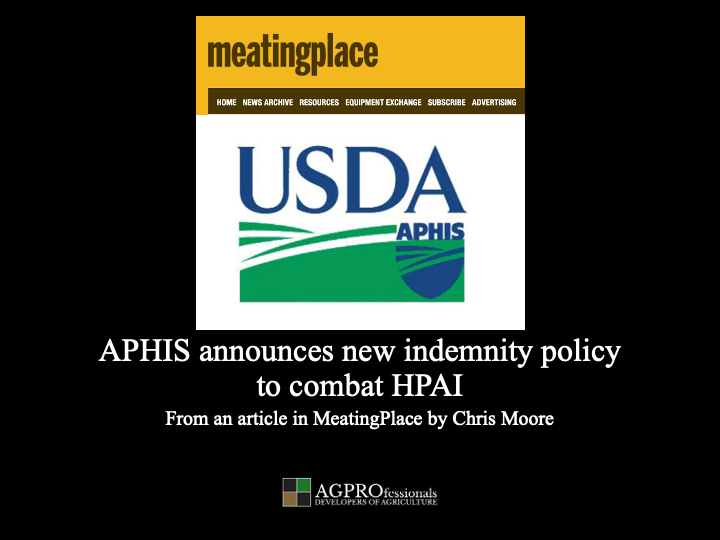The USDA's Animal and Plant Health Inspection Service (APHIS) announced its latest policy to stop the further spread of HPAI through American farms.
In a statement, APHIS explained that on farms where HPAI is detected, farmers must undergo a biosecurity audit before restocking their poultry and before receiving future indemnity payments. The new policy, APHIS stated, is "based on evidence that strong biosecurity measures remain the most effective strategy to combat HPAI."
“During the outbreak of HPAI in 2014 and 2015, U.S. poultry owners made great improvements to biosecurity to protect their flocks, which greatly reduced the presence of HPAI among the country’s poultry flock,” said Dr. Rosemary Sifford, USDA chief veterinary officer. “Biosecurity is proven to be our best weapon in fighting this virus, and this update will ensure that poultry producers who received indemnity for HPAI are taking measures to stop future introductions of the disease and avoiding actions that contribute to its spread.”
Details about the new policy include:
- APHIS itself will conduct the biosecurity audit.
- To qualify for future indemnity, APHIS must also audit all commercial poultry premises within the “buffer zone” (minimal 7 kilometer radius around the infected zone) prior to restocking.
- If flocks become infected with HPAI within 14 days of a control area's dissolution, APHIS will not pay indemnity.
- A producer who does not make corrections recommended in APHIS’s biosecurity audit will not be eligible for indemnity payments if the premises experiences future infections within the same outbreak.
APHIS is accepting comments about the policy, and the deadline for public remarks is March 3. Once the interim rule is published in the Federal Register, it will take effect.

